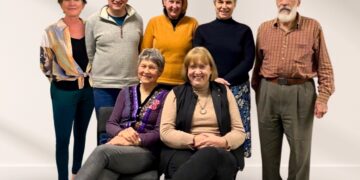THE GOVERNMENT’S move to appoint a menopause employment champion has been welcomed by one of the borough’s four MPs.
James Sunderland raised the issue in Parliament on Monday, wanting to know what the Department for Work and Pensions is doing to improve support for women as they go through the menopause.
Responding, Mims Davies said Helen Tomlinson would become the first-ever person in the role.
“She is driving awareness of issues around menopause and employment, and what challenges women may have,” Ms Davies said.
“She has already met with members of the DWP’s 50Plus Choices roundtable group; with the Chair of the Women and Equalities Select Committee; with Dame Lesley Regan, the women’s health ambassador; and with Andy Briggs, the Government’s business champion for older workers.
“We are working with sectors and with large and small employers to disseminate best practice.”
Mr Sunderland said Parliament should do all it could to support women undergoing the menopause and called on wider availability for
hormone replacement therapy (HRT), and wanted to know if Government was considering offering paid leave to those who may need time off work to attend clinics for medical support.
“The Government expects employers to treat their staff well and fairly, and to accommodate all sorts of flexibility requests,” Ms Davies
said, adding that a bill on flexible working practices is going through parliament, while the department for work and pensions would be developing similar policies, something she said was “crucial”.
Also speaking in the debate was Carolyn Harris (Labour, Swansea East), who said that more than 700,000 women over 50 were “economically inactive” and wanted to know if the menopause could be included in the assessment criteria for occupational health, saying it could “help to promote retention and the return to work of countless women”.
Ms Davies said she would take on board her comments.
Afterwards, Mr Sunderland said he had raised the issue after being contacted by constituents who had been affected by menopause.
“I’ve also spoken to female colleagues to see whether more can be done,” he told Wokingham Today.
“My instinct is that we are yet to have a proper conversation about the menopause, and I suspect that more can be done for
sufferers.
“Offering paid leave for those attending clinics or needing medical support could be one way of making it that little bit easier, although
I do not underestimate the wider impact of what the menopause means for so many women and their loved ones.”














































